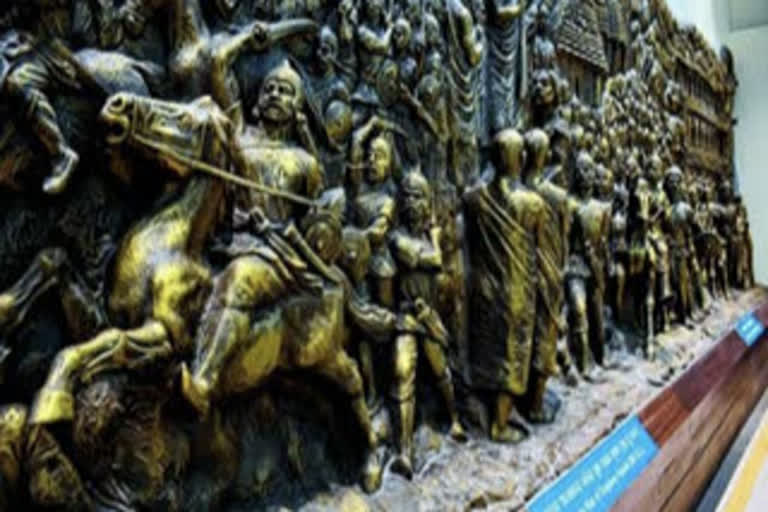New Delhi: The Union government on Tuesday said the declaration of ‘Paika Bidroha’ (Paika rebellion) as the first war of Independence is under its consideration. Replying to an unstarred question asked by Rajya Sabha MP from Odisha, Prasanna Acharya, Union Minister for Culture and Tourism G. Kishan Reddy stated in Rajya Sabha that declaration of ‘Paika Bidroha’ as the first war of Independence is under consideration of the Ministry of Education.
It may be mentioned here that Odisha Chief Minister Naveen Patnaik made a request to recognize the ‘Paika Bidroha’, the historic armed rebellion by the Paikas against British East India Company’s rule in Odisha in 1817, as the first war of Independence to the Ministry of Home Affairs. The union minister said that the issue was sent to the Ministry of Culture for examination in consultation with the Indian Council of Historical Research. It is worth mentioning, the Indian Council of Historical Research functions under the Ministry of Education.
Also read: Pradhan urges Culture minister to direct ASI to preserve monuments in Ratnachira valley in Puri
Who are Paikas? What is Paika Rebellion?
Paikas were essentially the peasant militias of the Gajapati rulers of Odisha who used to provide military service to the king during times of war while taking up cultivation during times of peace. Paikas were from a variety of social groups who had been recruited since the 16th century by kings in Odisha. After entering Odisha in 1803, the British ruler introduced a new revenue system due to which many Odia landowners ended up losing their lands. Changes in the currency and revenue systems meant the Odias had to pay taxes in silver, which was more expensive for them. This resulted in further marginalization and oppression of the Odias. In 1817, Kondhs who belonged to the state of Ghumsur banded together to revolt against the British.
Bakshi Jagabandhu Bidyadhar Mohapatra Bharamarbar Rai, the highest-ranking military general of King of Khorda Mukund Dev II, led the Paikas to join the uprising. During the course of the rebellion, they burnt government buildings in Banapur, killed policemen and British officials, and looted the treasury. The Paikas were supported by the kings of Kanika, Kujang, Nayagarh and Ghumusar (current district Ganjam and Kandhamal) and zamindars, village heads and ordinary peasants. The rebellion quickly spread to Purl, Pipli, Cuttack and other parts of the province.
Also read: Need to explore current trends in range technology & range instrumentation: DRDO chairman
The British were initially taken aback and then tried to regain lost ground but faced stiff resistance from the rebelling Paikas. The uprising lasted a few months, but was eventually crushed by the better-equipped and trained forces of the East India Company. Bakshi Jagabandhu escaped to the jungles and ultimately surrendered in 1825 under negotiated terms & died in captivity in 1829.
Though the Paika Bidroha enjoys a cultural status in Odisha, unfortunately, it received less attention at the national level like the 1857 rebellion.



